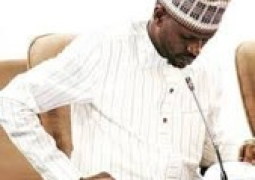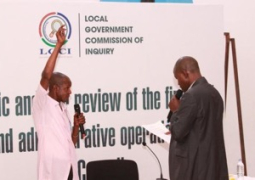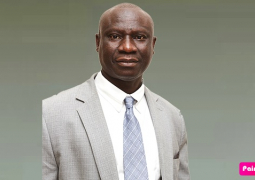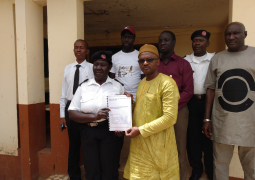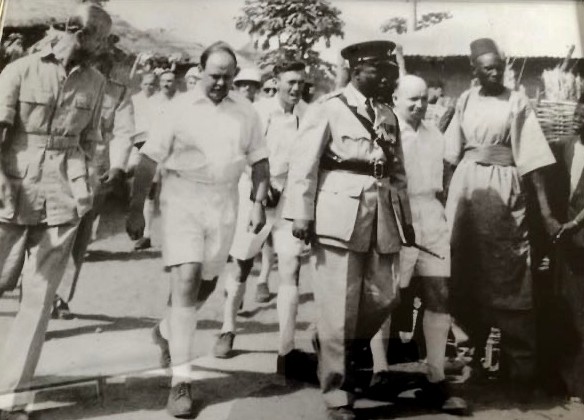
As we condole with the British on the recent passing of Prince Philip, Duke of Edinburgh, it is worth exploring the intersection of our past to draw valuable lessons that can inform the manner in which we shape our present for the sake of future generations.
A totemic event
In wake of the Second World War, as the dawn of a new world order and independence set on the shores of Normandy then cascaded to India and the hallow lands of Africa, Prince Philip visited The Gambia as part of his 1956-57 four-month world tour. He described The Gambia as "one of Britain's oldest connections in Africa, and certainly one of the happiest”. His visit was the first by European royalty in over four centuries. And included a comprehensive tour of The Gambia into the “Bolong regions” and hinterlands of the “Colony” via the River Gambia accompanied by a royal guard, Governor Sir Percy Wyn-Harris, and Police Inspector M.A. Lette.
During this tour, the Duke of Edinburgh visited Mansa Konko, an administrative centre under the British, to view wildlife and assess local agricultural value chains and observed the modern and traditional farming techniques employed by the local populations.
Most significantly, the Duke of Edinburgh attended the Annual Chiefs’ Conference of 1957 in Sankwia, where in The Gambia was described as a “country of change and experiment”.
In retrospect, this was a highly totemic event as it established the steppingstones to the country’s independence and feinted Britain’s evolution from an Empire to a Commonwealth of Nations.
Left-to-Right: Late Prince Philip, Governor Wyn-Harris, Police Inspector MA Lette, MansaKonko, Lower River Division, The Gambia (1957).
On the path to independence
Theconferencefocusedonthenewlyinstitutedconstitutionof1954, which was based on the commendations of an all-Gambian committee, and potential paths to independence. British media described the Chiefs in attendance as “magnificent stately figures that were not interested intaking part in empty pageantry but instead were in intent on discussing the shifts in power within Africa and the moves towards self-government”.
A year later, the then beleaguered Governor Wyn-Harris, who was broadly opposed to the development of self-government, was forced to leave the country. He was replaced by Governor Sir Edward Windley who instituted the 1959 and1961 Constitutions which led to the establishment of the House of Representatives and full self-government marked by the first Chief Minister (Pierre Sarr N’jie), respectively. The Gambia attained its independence four years later on February 18, 1965, ushering in the first Republic of The Gambia under Sir Dawda Kairaba Jawara.
While Prince Philip's legacy may be debatable depending upon one’s perspective, what is not is the significance of his trip on The Gambia’s path to political independence. As the country struggles to establish its economic emancipation in the 21st century, it is going to take equally magnificent stately figures that are not interested in taking part in empty pageantry but rather intently focused on economic development and self-reliance much like the Chiefs did in Sankwia 64 years ago.
Securing our future
To achieve this goal, The Gambia once again needs to become a “country of change and experiment”. It is going to require both the “Chiefs” of State and the private sector to develop our beloved country’s God-given endowments — such as wildlife, agriculture, and its people’s sedulous spirit — into formidable industries for the benefit of the people of The Gambia.
Despite the Duke of Edinburgh’s visit being over 60 years ago, the yearn for freedom and self-reliance by the people of Africa remains just as relevant today.
Our leadership should continue to be forward-looking and provide the appropriate and conducive policy environment to enable the private sector to flourish. Coupled with audacious private sector investment, The Gambia should be able to strengthen its productive economic sectors in a diversified way to ensure competitiveness in the regional and global markets. With the advent of the African Continental Free Trade Area (AfCFTA), it is a prime opportunity for The Gambia to do so.
As the world mourns the late Duke of Edinburgh, we the Gambian people should remember and embrace the spirit of our forefathers by urgently and intentionally setting the foundations of our enduring economic emancipation for the sake of the generation of Gambians to come.
About the Global Africa Group
Group Global Africa Group is a group of companies, bound by a single purpose – to spur growth in Africa. Inspired by this spirit, our mission to always positively impact our partners, stakeholders, communities and the continent at large remains unshakeable. Our companies are involved in the key sectors of the pan African economy, namely: agriculture & agro-industrialisation, tourism & hospitality, trade & financial services, natural resource, renewable energy and ICT. The company is headquartered in South Africa with operations across Sub-Saharan Africa.


